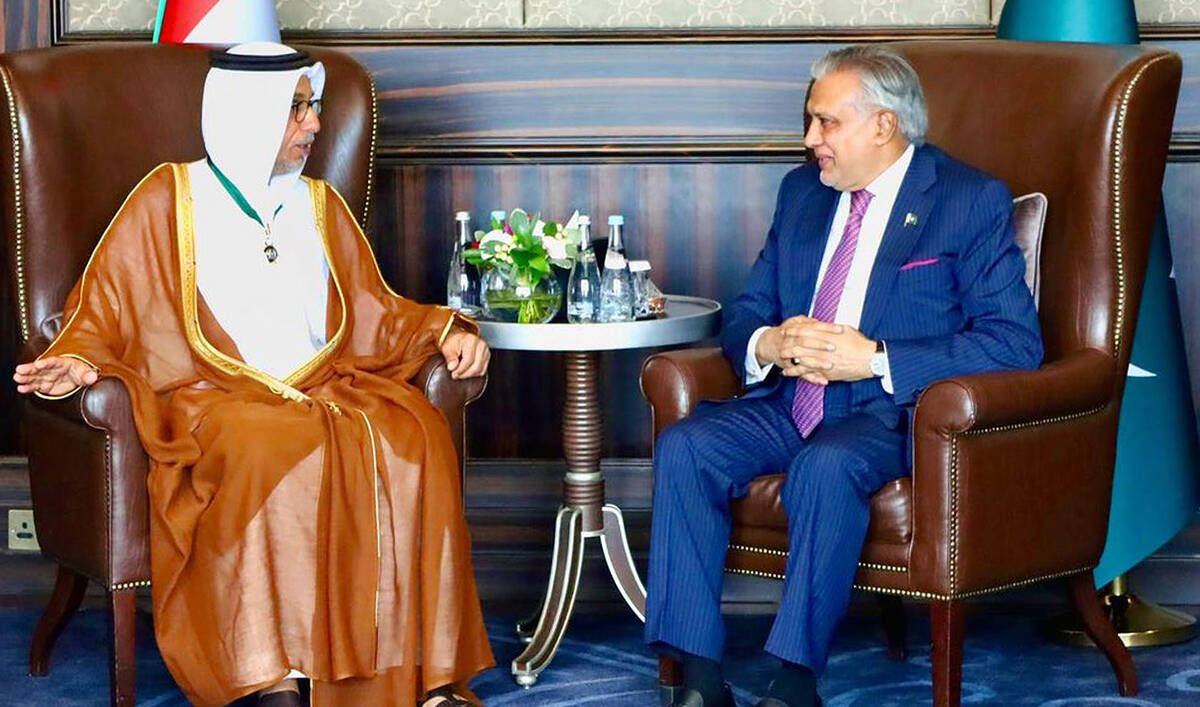ISLAMABAD: Pakistan Deputy Prime Minister Ishaq Dar met with United Arab Emirates Foreign Minister Sheikh Abdullah bin Zayed in Abu Dhabi and signed a mutual visa exemption agreement for holders of diplomatic and official passports, Dar said on Wednesday.
The agreement was inked at the conclusion of the 12th session of the Pakistan-UAE Joint Ministerial Commission (JMC), held in Abu Dhabi after a gap of 12 years.
“My brother HH Sheikh Abdullah bin Zayed and I signed an agreement on mutual visa exemption for the holders of diplomatic & official passports of our two countries… This important step reflects our shared resolve to further strengthen our fraternal ties and deepen institutional collaboration across all levels,†In a post on X, Dar wrote.
The revival of the JMC follows a renewed push by Islamabad to deepen its economic engagement with the UAE, one of its closest regional partners and a major investor in infrastructure, energy and logistics projects, among others.آ
Separately, Dar also met with Mohammed Saif Al Suwaidi, Director General of the Abu Dhabi Fund for Development (ADFD) on Tuesday, to discuss expanding cooperation in energy and infrastructure, and to explore new avenues for sustainable investment, state broadcaster Radio Pakistan said.
“They discussed enhancing development cooperation, expanding ADFD’s support for key infrastructure and energy projects in Pakistan, and exploring new avenues for sustainable investment,†Radio Pakistan said in a report.
Both sides reaffirmed their commitment to “deepening economic ties and promoting shared growth and prosperity.â€
During the meeting, Dar presented Al Suwaidi with the Hilal-e-Quaid-e-Azam, one of Pakistan’s highest civil awards, on behalf of President Asif Ali Zardari, in recognition of his “exceptional contributions to the promotion of Pakistan-UAE cooperation.â€

Pakistan Deputy Prime Minister and Foreign Minister Ishaq Dar (right) meets Director General of the Abu Dhabi Fund for Development (ADFD) Mohammed Saif Al-Suwaidi in Abu Dhabi on June 24, 2025. (Pakistan's Foreign Office)
The ADFD has backed several major development projects in Pakistan over the years, including highways, energy facilities, and airport upgrades.
The UAE is Pakistan’s third-largest trading partner after China and the United States. More than 1.5 million Pakistanis live and work in the UAE, sending back over $5 billion in remittances annually.
Bilateral trade reached approximately $10.9 billion in fiscal year 2023–24, including $2.08 billion in exports and $6.33 billion in imports, according to official Pakistani data.
Last year, the UAE pledged $10 billion in future investments in promising sectors of Pakistan’s economy.
Islamabad, struggling with high inflation and IMF-mandated fiscal tightening, has been courting strategic partners to help stabilize its economy and revive growth.











